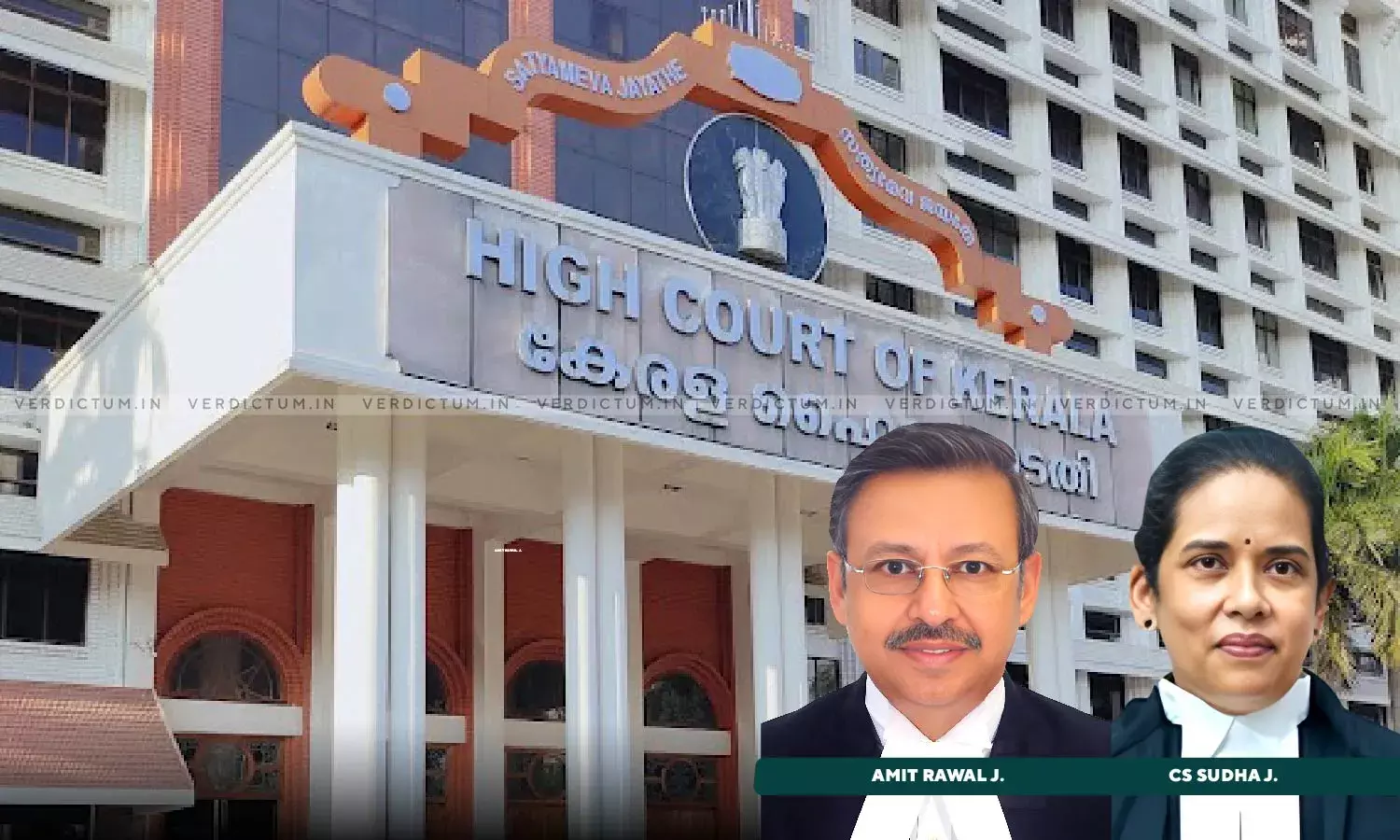'Canadian Court Lacks Jurisdiction Over It': Kerala HC Injuncts Husband Who Filed Suit Against Wife In Canada Not To Stake Claim In Respect Of Properties In India

The Kerala High Court has recently stated that a Canadian court lacks jurisdiction over properties situated in India and that for any party seeking relief, the appropriate course of action would be to file a suit in a court with the rightful jurisdiction over the matter.
The Division Bench of Justice Amit Rawal and Justice C.S. Sudha observed, "Canadian court would not have jurisdiction with regard to the property/properties located in Kerala. Either of the parties have to seek relief by filing a suit in court having proper jurisdiction. This aspect of the matter has gone unnoticed while rejecting the interim application."
Based on the aforesaid principle, the Court also observed that the "Canadian court would not have jurisdiction with regard to the property/properties located in Kerala. Either of the parties have to seek relief by filing a suit in court having proper jurisdiction."
The issue for consideration before the High Court was whether an anti-suit injunction, initiated by one spouse, can be deemed maintainable against the other spouse who has filed a suit in Canada, encompassing various claims.
Background: The case involves a marriage solemnized in 1999, migration to Canada, the birth of two children, and the subsequent deterioration of the marital relationship leading to legal proceedings in both Canada and India. Later a discord in the relationship led to the wife filing a divorce petition in India, while the husband initiated legal proceedings in Canada, asserting multifarious claims, including child support, decision-making responsibility for children, parenting time, restraining orders, spousal support, and property-related matters.
In 2019, the husband also filed a partition suit for joint property in India, resulting in an ex parte preliminary decree. The wife, apprehending that the property-related claim in Canada might not encompass assets in India, invoked the jurisdiction of the Family Court, Kollam, under Section 7(1)(d) of the Family Courts Act. Simultaneously, an application under Order 39 Rule (1)(2) was filed, which was dismissed, leading to the filing of the present petition before the High Court
The Petitioner before the High Court relied on Section 7(1)(d) of the Family Courts Act, explanation (d), and Section 41 of the Specific Relief Act. The petitioner submitted that the doctrine of lex situs, emphasizing the applicability of law based on the location of the property, should be considered, particularly as there was no contractual agreement between the spouses regarding Indian properties.
On the contrary, the respondent contended that an anti-suit injunction, as sought, would not be maintainable under Section 41 of the Specific Relief Act.
Upon consideration, the Kerala High Court observed that the majority of reliefs sought in the Canadian suit fell outside the jurisdiction of Indian courts. Specifically, the Canadian court lacked jurisdiction over properties situated in Kerala. The court highlighted the oversight in rejecting the interim application, emphasizing that either party must seek relief by filing a suit in the court with proper jurisdiction.
The Court also referred to Dinesh Singh Thakur v. Sonal Thakur [2018 KHC 6299] stating that the judgment was based on the admission of the wife and pertained solely to divorce proceedings, which had already been adjudicated upon. The Court accordingly held that Section 41 of the Specific Reliefs Act was deemed inapplicable to the relief sought in Canada.
The Court observed, "Either of the parties have to seek relief by filing a suit in court having proper jurisdiction. This aspect of the matter has gone unnoticed while rejecting the interim application. Court should have been wary in applying the principles culled out in the judgment of Dinesh Singh Thakur’s case as it was based upon the admission of wife and pertaining to only divorce proceedings which has already been pending and adjudicated upon, though the copy of the order is yet to be made available. for the same relief be permitted to continue with the suit in Kerala. But the court below noticing the fact that the suit is maintainable refused to grant injunction."
The High Court accordingly modified the trial court's order, enjoining the respondent from claiming properties in joint ownership or individual names in India. However, the injunction did not extend to other reliefs or property-related claims in Canada.
Cause Title: Archana Pius v. Shine [OP (FC) NO. 274 OF 2023]

